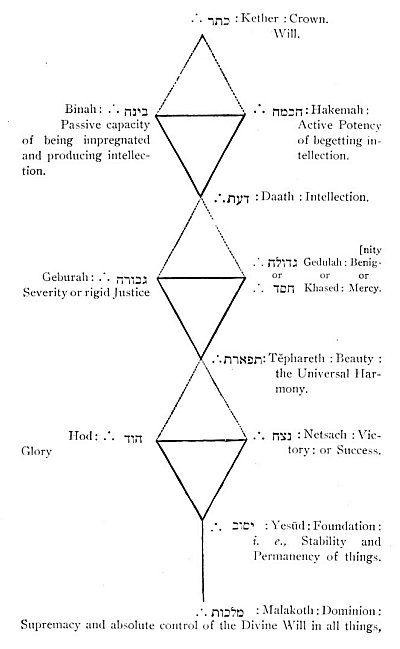The idea of the universal preceded the recognition of any system for its explanation. It was felt rather than understood; and it was long before the grand conception on which all philosophy rests received through deliberate investigation that analytical development which might properly entitle it to the name. The sentiment, when first observed by the self-conscious mind, was, says Plato, “a Divine gift, communicated to mankind by some Prometheus, or by those ancients who lived nearer to the gods than our degenerate selves.” The mind deduced from its first experiences the notion of a general Cause or Antecedent, to which it shortly gave a name and personified it. This was the statement of a theorem, obscure in proportion to its generality. It explained all things but itself. It was a true cause, but an incomprehensible one. Ages had to pass before the nature of the theorem could be rightly appreciated, and before men, acknowledging the First Cause to be an object of faith rather than science, were contented to confine their researches to those nearer relations of existence and succession, which are really within the reach of their faculties. At first, and for a long time, the intellect deserted the real for a hastily-formed ideal world, and the imagination usurped the place of reason, in attempting to put a construction on the most general and inadequate of conceptions, by transmuting its symbols into realities, and by substantializing it under a thousand arbitrary forms.
In poetry, the idea of Divine unity became, as in Nature, obscured by a multifarious symbolism; and the notionalities of transcendental philosophy reposed on views of nature scarcely more profound than those of the earliest symbolists. Yet the idea of unity was rather obscured than extinguished; and Xenophanes
p. 675
appeared as an enemy of Homer, only because he more emphatically insisted on the monotheistic element, which, in poetry, has been comparatively overlooked. The first philosophy reasserted the unity which poetry had lost; but being unequal to investigate its nature, it again resigned it to the world of approximate sensations, and became bewildered in materialism, considering the conceptional whole or First Element as some refinement of matter, unchangeable in its essence, though subject to mutations of quality and form in an eternal succession of seeming decay and regeneration; comparing it to water, air, or fire, as each endeavored to refine on the doctrine of his predecessor, or was influenced by a different class of theological traditions.
In the philosophical systems, the Divine Activity, divided by the poets and by popular belief among a race of personifications, in whom the idea of descent replaced that of cause, or of pantheistic evolution, was restored, without subdivision or reservation, to nature as a whole; at first as a mechanical force or life; afterward as an all-pervading soul or inherent thought; and lastly as an external directing Intelligence.
The Ionian revival of pantheism was materialistic. The Moving Force was inseparable from a material element, a subtle yet visible ingredient. Under the form of air or fire, the principle of life was associated with the most obvious material machinery of nature. Everything, it was said, is alive and full of gods. The wonders of the volcano, the magnet, the ebb and flow of the tide, were vital indications, the breathing or moving of the Great World-Animal. The imperceptible. ether of Anaximenes had no positive quality beyond the atmospheric air with which it was easily confused: and even the “Infinite” of Anaximander, though free of the conditions of quality or quantity, was only an ideal chaos, relieved of its coarseness by negations. It was the illimitable storehouse or Pleroma, out of which is evolved the endless circle of phenomenal change. A moving Force was recognized in, but not clearly distinguished from, the material. Space, Time, Figure, and Number, and other common forms or properties, which exist only as attributes, were treated as substances, or at least as making a substantial connection between the objects to which they belong: and all the conditions of material existence were supposed to have been evolved out of the Pythagorean Monad.
The Eleatic philosophers treated conceptions not only as
p. 676

Moe is the founder of GnosticWarrior.com. He is a father, husband, author, martial arts black belt, and an expert in Gnosticism, the occult, and esotericism.





